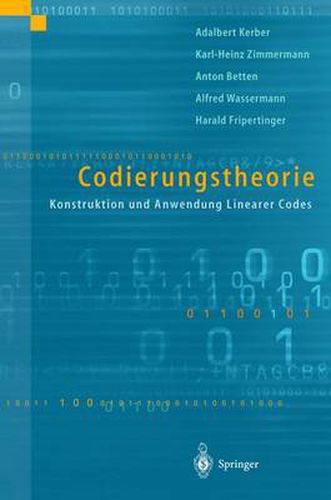Readings Newsletter
Become a Readings Member to make your shopping experience even easier.
Sign in or sign up for free!
You’re not far away from qualifying for FREE standard shipping within Australia
You’ve qualified for FREE standard shipping within Australia
The cart is loading…






This title is printed to order. This book may have been self-published. If so, we cannot guarantee the quality of the content. In the main most books will have gone through the editing process however some may not. We therefore suggest that you be aware of this before ordering this book. If in doubt check either the author or publisher’s details as we are unable to accept any returns unless they are faulty. Please contact us if you have any questions.
Die algebraische Codierungstheorie ist ein neues Teilgebiet der diskreten Mathematik, dessen Ergebnisse bei der sicheren Datenubermittlung angewandt werden. Das Buch stellt im ersten Teil ausfuhrlich die Grundlagen der algebraischen Codierungstheorie dar. Im zweiten Teil untersuchen die Autoren lineare Codes. Dabei legen sie besonderen Wert auf die Decodierung der behandelten Codes anhand eines effizienten Mehrheitsentscheidungsverfahrens.
$9.00 standard shipping within Australia
FREE standard shipping within Australia for orders over $100.00
Express & International shipping calculated at checkout
This title is printed to order. This book may have been self-published. If so, we cannot guarantee the quality of the content. In the main most books will have gone through the editing process however some may not. We therefore suggest that you be aware of this before ordering this book. If in doubt check either the author or publisher’s details as we are unable to accept any returns unless they are faulty. Please contact us if you have any questions.
Die algebraische Codierungstheorie ist ein neues Teilgebiet der diskreten Mathematik, dessen Ergebnisse bei der sicheren Datenubermittlung angewandt werden. Das Buch stellt im ersten Teil ausfuhrlich die Grundlagen der algebraischen Codierungstheorie dar. Im zweiten Teil untersuchen die Autoren lineare Codes. Dabei legen sie besonderen Wert auf die Decodierung der behandelten Codes anhand eines effizienten Mehrheitsentscheidungsverfahrens.